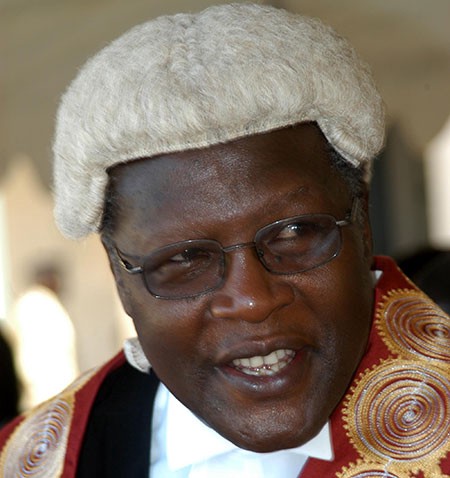The Supreme Court has granted relief to a herdsman, one Moses Rwabugande, who was convicted of murder in 2011. Court reduced his jail term from 35 years to 21 years.
This followed an appeal in the Supreme Court in which he challenged the ruling of the Court of Appeal.
He faulted the judges of the Court of Appeal for erring in law when they held that the he participated in killing of the deceased without ample evidence. He further faulted the judges for rejecting his defence that he is not the one who caused the death of the deceased but rather a one Kafesi, thereby causing a miscarriage of justice. He also argued that the learned Justices of Appeal erred in law when they held that the appellant was liable under the principle of ‘common intention’ yet there was no such intention.
However, while delivering the ruling on the matter, the five Justices of the Supreme Court; Bart Katureebe, Jotham Tumwesigye, Stella Arach-Amoko, Eldad Mwangusya and Lillian Tibatemwa-Ekirikubinza were in agreement with the findings of the lower court.
“The sentence imposed by the learned trial judge is not illegal. It is neither manifestly harsh nor excessive considering the fact that the maximum penalty for the offence of murder is death. We find no reason of interfering with the discretion of the trial judge and we accordingly uphold the sentence,” read part of the ruling of the Court of Appeal.
The Court of Appeal had found that the trial judge had proved beyond reasonable doubt that the appellant was the owner of the cows and was part of a group of people that went to the deceased’s home on the night of December 24, 2010, to rescue them and unlawfully assaulted the deceased with sticks.
“When two or more persons form a common intention to prosecute an unlawful purpose in conjunction with one another, and in the prosecution of that purpose an offence is committed of such a nature that its commission was a probable consequence of the prosecution of that purpose, each of them is deemed to have committed the offence,” read part of the judgment of the Court of Appeal.
The only instance where the Supreme Court deferred with the Court of Appeal was the sentence.
“We note that the issue of the trial Judge not considering the remand period was not challenged in the Court of Appeal. What was challenged was the harshness of the sentence. A question which then follows is whether this court can address an issue which the first appellate court had no opportunity to rule on but was nevertheless brought to the attention of this Court. The general rule is that an appellate court will not consider an argument raised for the first time on appeal.”
“In light of the above, we will thus proceed to address the issue of failure by the lower court to consider the remand period even though it was not raised on first appeal. A sentence arrived at without taking into consideration the period spent on remand is illegal for failure to comply with a mandatory constitutional provision.
We therefore find that in re-evaluating the sentence, the learned Justices of Appeal erred in failing to take into account the period the appellant had spent on remand and instead upheld an illegal sentence.”
The sentence was reduced to 22 years and further to 21 years.
“To arrive at the appropriate sentence, we have considered both the aggravating and mitigating factors on record as well as the period spent on remand. We agree that the offence committed was grave and that the sentence to be given must reflect the enormity of the accused’s unlawful conduct. On the other hand, it was pleaded in mitigation that the appellant was a first time offender and was aged 24 years. Considering that the appellant committed the offence at a relatively young age we are convinced that it is necessary to give him a prison sentence which will enable him to reform and be re-integrated back into society.
“We come to the conclusion that in the circumstances of the case, a sentence of 22 years is appropriate. However, in line with Article 23 (8) of the Constitution, the appellant will serve a sentence of 21 years which will run from the time of conviction.”
Meanwhile, this was a second appeal, brought against the decision of the Court of Appeal, which upheld the judgment of the High Court (Justice Monica Mugenyi), sitting at Luweero on December 15, 2011.
The Appellant was indicted, tried and convicted of the offence of murder contrary to Sections 188 and 189 of the Penal Code Act Cap 120. He was sentenced to 35 years imprisonment. On appeal to the Court of Appeal, the conviction and sentence were upheld.
The brief background to this appeal is that on December 24, 2010, a scuffle ensued between the deceased and Rwabugande together with his herdsman on the other, over an impounded herd of cattle. The deceased was hit with a herdsman stick twice on the head. He sustained bodily injuries which led to his death. The High Court and Court of Appeal found the appellant guilty of murder.
At the hearing of the appeal, the Appellant was represented by Counsel Andrew Sebugwawo, on State Brief, while the Respondent was represented by the Principal State Attorney, Kulu Idambi John Boniface.








